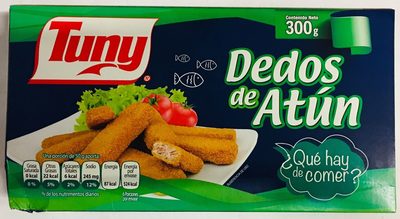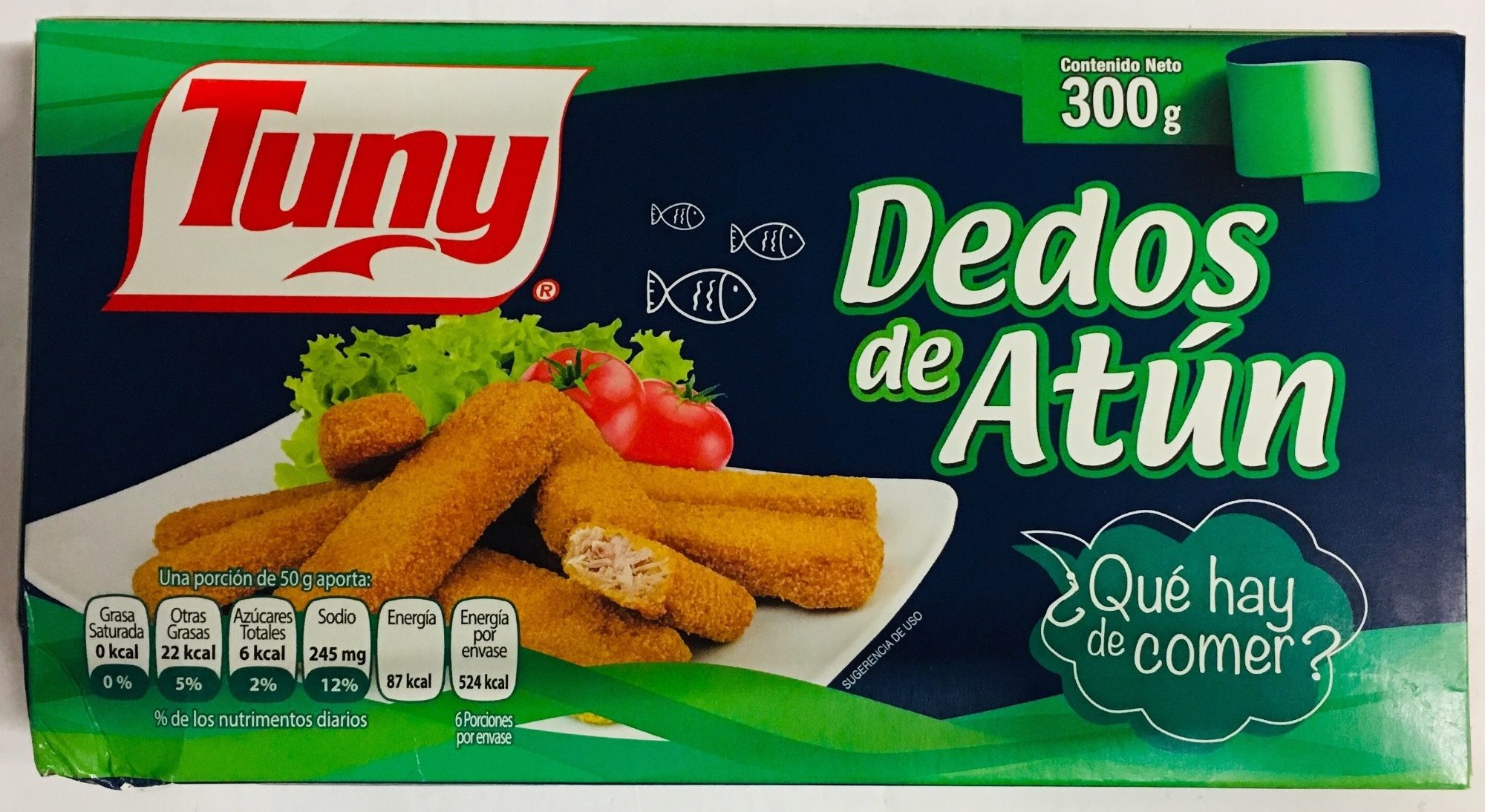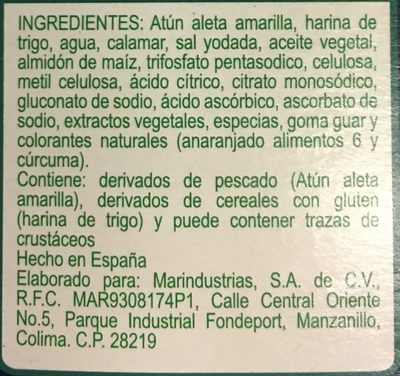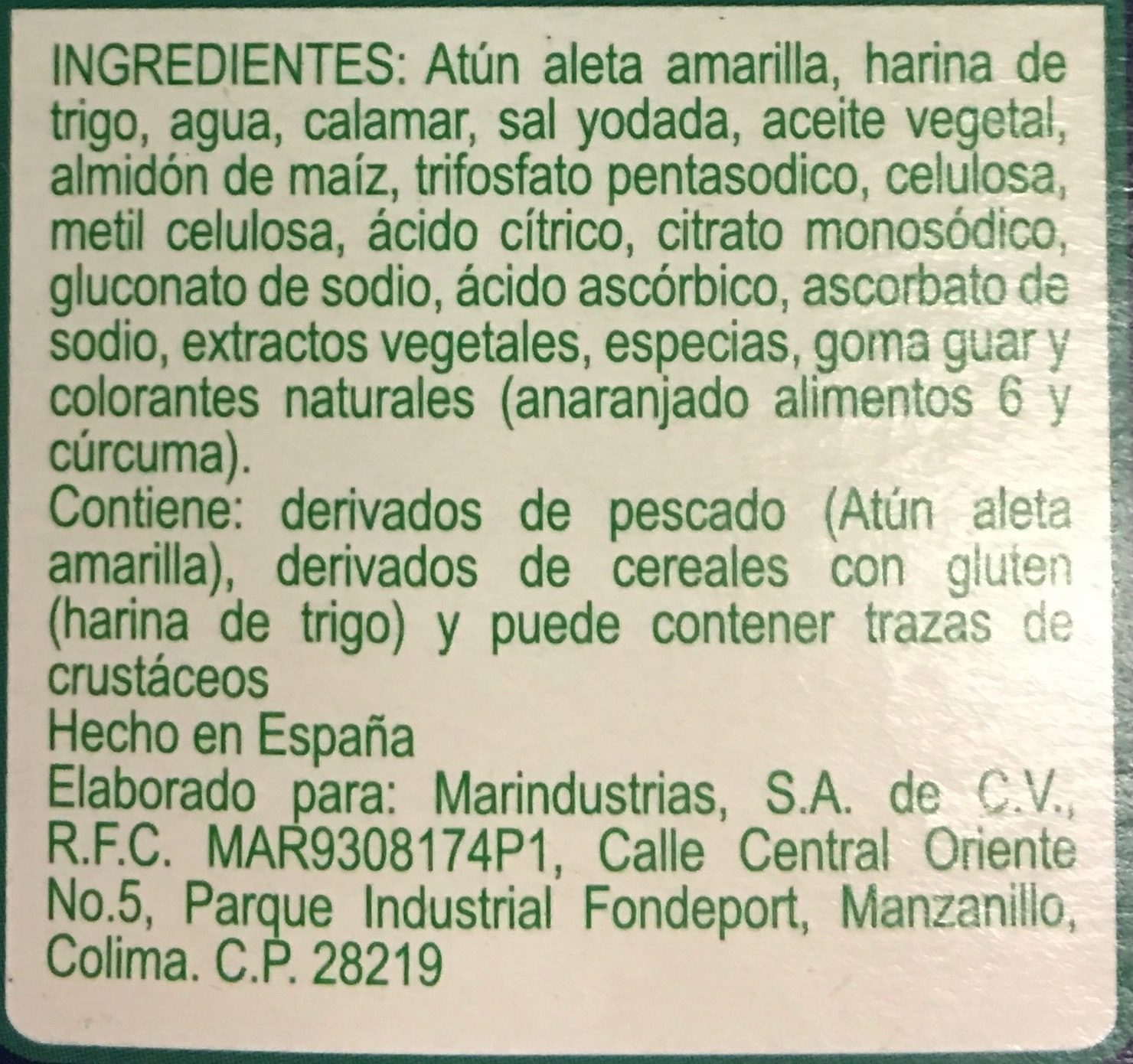Dedos de atun - Tuny - 300 g.
This product page is not complete. You can help to complete it by editing it and adding more data from the photos we have, or by taking more photos using the app for Android or iPhone/iPad. Thank you!
×
Barcode: 7501041418661 (EAN / EAN-13)
Common name: Dedos de atun
Quantity: 300 g.
Packaging: Plastic, Frozen, Vacuum-packed
Brands: Tuny
Categories: Frozen foods, Meals, Frozen ready-made meals
Labels, certifications, awards: Made in Spain
Origin of ingredients: Spain
Manufacturing or processing places: Manzanillo, Colima, México
Stores: Walmart, Soriana, Lacomer, Sams, Costco
Countries where sold: Mexico
Matching with your preferences
Environment
Packaging
Transportation
Report a problem
Data sources
Product added on by openfoodfactsmx7
Last edit of product page on by packbot.
Product page also edited by musarana, roboto-app.










